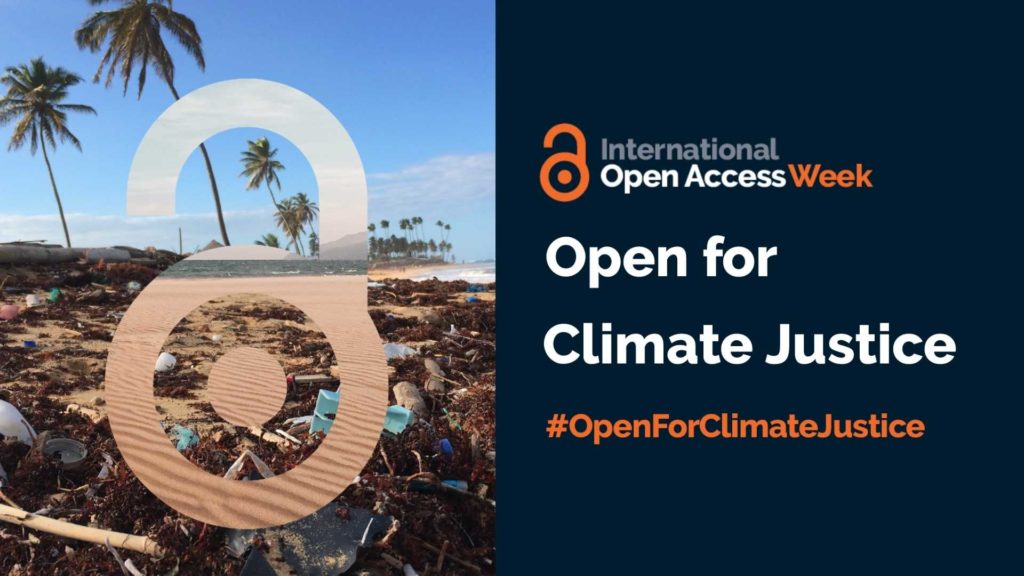
It’s Open Access Week!
This week marks International Open Access Week, celebrated from October 24-30. The theme for 2022 is “Open for Climate Justice.” According to SPARC, the organization behind OA week, Climate Justice:
… is an explicit acknowledgment that the climate crisis has far-reaching effects, and the impacts are “not be[ing] borne equally or fairly, between rich and poor, women and men, and older and younger generations,” as the UN notes. These power imbalances also affect communities’ abilities to produce, disseminate, and use knowledge around the climate crisis. Openness can create pathways to more equitable knowledge sharing and serve as a means to address the inequities that shape the impacts of climate change and our response to them.
The Open Access movement is reflected in policies set forth by Stanford, the National Institutes of Health, and the White House Office of Science and Technology Policy (OSTP). The movement to make research outputs freely available to the public is growing and it has benefits for individuals, institutions, and the global community alike.
Rochelle Lundy, the director of Stanford’s Office of Scholarly Communications, shares the following message of support for OA week:
International Open Access Week provides an opportunity to celebrate how open access creates positive change on a global scale through the equitable sharing of knowledge. Stanford’s Open Access Policy, passed by resolution of the Faculty Senate, reflects our community’s commitment to participate in these efforts. The Open Access Policy ensures that faculty members automatically retain the right to make their work openly available without paying a publishing fee and preserves their freedom to publish in the journal of their choice. Stanford Libraries’ Office of Scholarly Communications is here to help authors take advantage of this policy and can assist in understanding, using, and communicating with publishers about it. In addition, all researchers across Stanford, including students, postdocs, and others not covered by the Open Access Policy, are welcome to contact the Office in order to explore the many ways in which research can be made open.
Ways to Support Open Access
As a researcher, there are many ways to contribute to the Open Access movement. You may consider:
- Publishing in an Open Access journal which allows all readers to read articles freely without imposing a paywall. Check the Directory of Open Access Journals to find potential journals
- Self-archiving a copy of your manuscript in a repository. Consider using the Stanford Digital Repository.
- Publishing a preprint, a copy of your manuscript that has not yet gone through peer review, to a preprint repository. Options include: MedRxiv, bioRxiv, and more.
- Sharing data, code, and other research outputs.
Resources Available through Lane Library
Did you know that through Lane Medical Library you have access to the Dryad data repository? There are currently over fifty open data sets related to climate change authored by Stanford researchers available for your reuse. Check out our Data Management and Sharing guide to learn more about utilizing Dryad.
Would you like to learn more about Open Access? Check out our guide for understanding Open Access, and read Stanford University’s Open Access Policy. If you have specific questions about Open Access, please reach out to your liaison librarian.